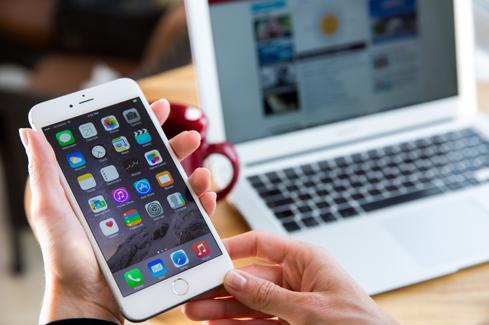iPhone Error 53 Prompts Lawsuit Against Apple
Following on reports of the iPhone Error 53, Apple is being taken to task for bricking the iPhones of consumers who sought out cheaper repairs. Attorneys are asking users to join a class action lawsuit against the company.


11 iPhone Apps To Get Healthy, Wealthy, And Productive
11 iPhone Apps To Get Healthy, Wealthy, And Productive (Click image for larger view and slideshow.)
Lawyers are going after Apple for rendering some iPhones useless. The Error 53 controversy, as it is being called, bubbled to the surface last week when some people found Apple intentionally bricked their phones for security purposes.
Broken iPhones are a pain in the rear, and Apple has made an already expensive ordeal even more so. Apple charges between $99 and $149 to repair broken iPhone screens. The cost is certainly less than replacing the iPhone outright, but it's still a bitter pill to swallow. That's why third-party repair shops will replace iPhone screens for less.
Consumers who've taken their iPhone 6 to outside businesses for new screens are now finding out the hard way that Apple doesn't necessarily approve.
The Error 53 code appears on devices in which the Touch ID was affected. Touch ID is affected any time non-Apple parts are used to replace the screen, Home button, or flex cable. Non-OEM parts are unable to pass a Touch ID validation check. If the Touch ID validation check fails (generally during an operating system update or restore) the iPhone is disabled and rendered useless.
That's some serious bull, claim the lawyers at Seattle law firm Pfau Cochran Vertetis Amala (PCVA).
Apple says the validation check is necessary.
"We protect fingerprint data using a secure enclave, which is uniquely paired to the touch ID sensor," explained Apple in a statement sent to the Mac Rumors website. "When iPhone is serviced by an authorized Apple service provider or Apple retail store for changes that affect the Touch ID sensor, the pairing is re-validated. This check ensures the device and the iOS features related to Touch ID remain secure. Without this unique pairing, a malicious Touch ID sensor could be substituted, thereby gaining access to the secure enclave. When iOS detects that the pairing fails, Touch ID, including Apple Pay, is disabled so the device remains secure."
This argument falls flat, according to PCVA, since repaired phones typically function normally for periods stretching to several months and are only bricked when the owner attempts to update the software.
"No materials we've seen from Apple ever show a disclosure that your phone would self-destruct if you download new software onto a phone," said PCVA's Darrell Cochran in the lawsuit. "If Apple wants to kill your phone under any set of circumstances and for any reason, it has to make it crystal clear to its customers before the damage is done."
[Read how Apple and Google are trying to kill off smartphone passwords.]
Cochran also calls out Apple's poor response, which is, in effect: "You have no options; it's not covered under warranty, and you have to buy a new phone."
The law firm is looking to score new, functional iPhones for members of the class, as well as $5 million in damages and mandatory changes to its repair restriction policies. The firm is seeking class members to join the lawsuit.
Apple hasn't responded to the lawsuit publicly.
According to Mac Rumors, however, some Apple Stores have been given permission to replace third-party screens, Touch ID modules, and flex cables, so that the devices will once again pass Touch ID validation. Apple has not confirmed that it plans to take such action.
Rising stars wanted. Are you an IT professional under age 30 who's making a major contribution to the field? Do you know someone who fits that description? Submit your entry now for InformationWeek's Pearl Award. Full details and a submission form can be found here.
About the Author
You May Also Like






